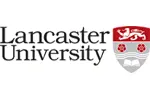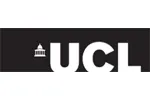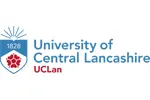Train in cutting-edge methods with leading experts from Lancaster University’s internationally renowned Digital Humanities Centre. We combine specialisms in the spatial humanities, corpus linguistics and natural language processing (NLP) with expertise across the broader humanities.
What is ‘data’ in the humanities? How are digital sources created? What are the advantages and limitations of material in digital form? As well as changing the way we live and work, the digital world is also transforming the way we study the humanities.Our MA in Digital Humanities will prepare you to work in this new world of data.
Why Lancaster?
- Learn the latest techniques from Lancaster’s internationally recognised experts in Digital Humanities
- Study in a faculty that specialises in the application of data science and artificial intelligence techniques in humanities research
- Get involved in international projects with places such as the United States, France, Mexico, Brazil, and India
- Collaborate with your peers in our Digital Scholarship Lab, a state-of-the-art research space with specialist software and equipment
- Develop skills that will open doors to exciting professional roles or PhD study
A global leader in the field
Digital methods are changing the ways in which humanities scholarship works across the UK and internationally, including how heritage organisations share and preserve collections, and how we publish research. AI is turbo-charging this in ways that are still developing. You will explore these shifts and others to analyse implications, positive and negative, for our disciplines, for libraries and archives, and for society.
Our academic team at Lancaster have tackled big research questions such as:
- How can AI be used to better understand the Holocaust?
- How can we read a million maps?
- How can Shakespeare's corpus be visualised?
- What can billions of words extracted from nineteenth-century newspapers and legal testimonies tell us about life in Victorian Britain?
- What changes can we identify at a landscape scale during the formation of the Aztec Empire?
Our MA in Digital Humanities is taught by our internationally recognised tutors who have a wide range of subject knowledge from across the Faculty of Humanities, Arts and Social Sciences and beyond. You can draw on their expertise and develop your degree in a way that suits your interests and career prospects.
Digital skills and contexts
Without assuming anything other than a conventional ability to work with computers, you will develop digital skills tailored to working with digitised humanities sources. As you acquire the technical competencies required to work with digital sources, you will place these methods in the context of key debates around the history, ethics and cultures of today’s digitised world.
Computational skills can be used to study societies and cultures of the past, present and future. On this course, you will develop your understanding of how digital technologies affect the humanities and broader society
Drawing on innovative research at Lancaster and further afield, you will learn the most up-to-date skills and most recent knowledge across a wide range of methods including:
- Artificial Intelligence
- Computational Linguistics
- Geographic Information Science
- Computer Vision
- Data Visualization
These skills can be applied to a range of disciplines from across the humanities including History, Literary Studies, Media Studies, Linguistics and many more.
A digital community
The MA in Digital Humanities is firmly embedded in Lancaster’s Centre for Digital Humanities. In this thriving community you will have access to a range of seminars and other events as well as opportunities to co-design new initiatives with students and staff. You will learn about developments in Digital Humanities at Lancaster and beyond and can meet and chat to PhD students and staff working in this exciting field. We also have access to the Digital Scholarship Lab in the Library where many events are held.









